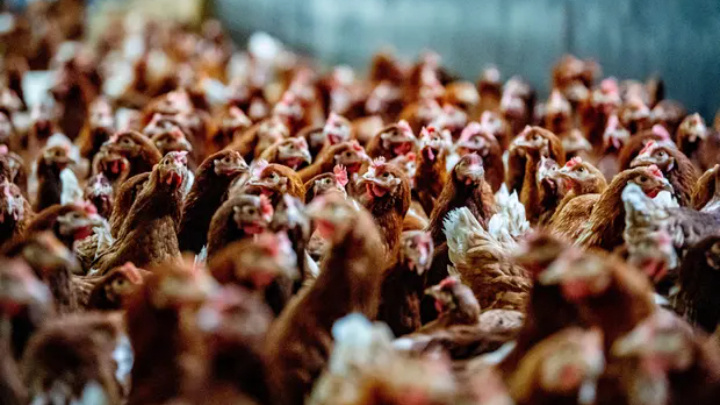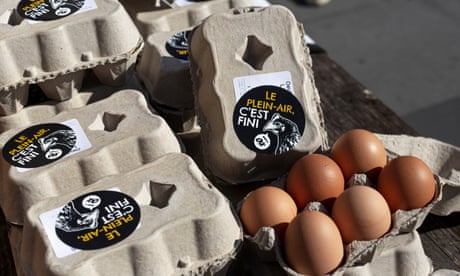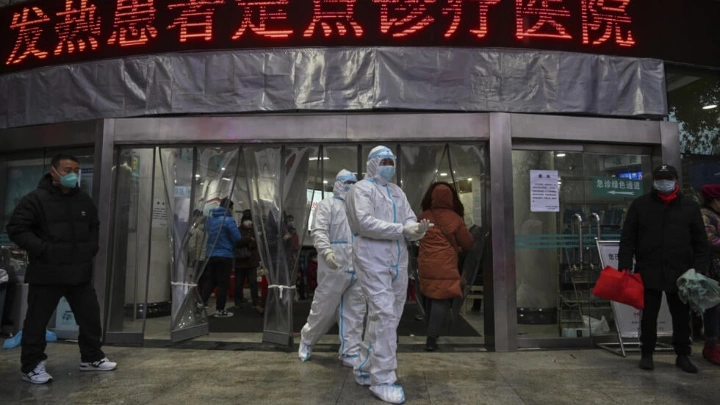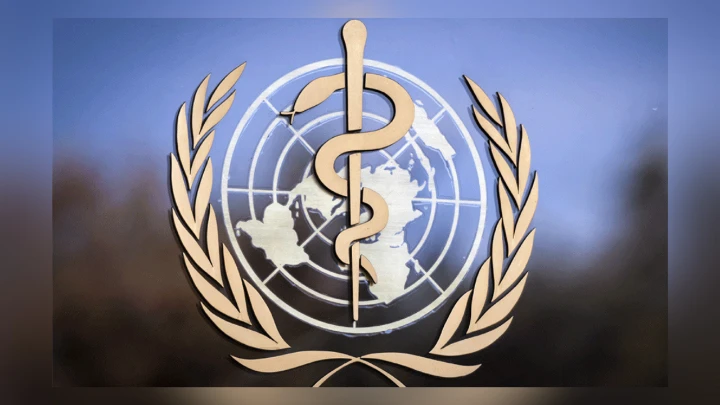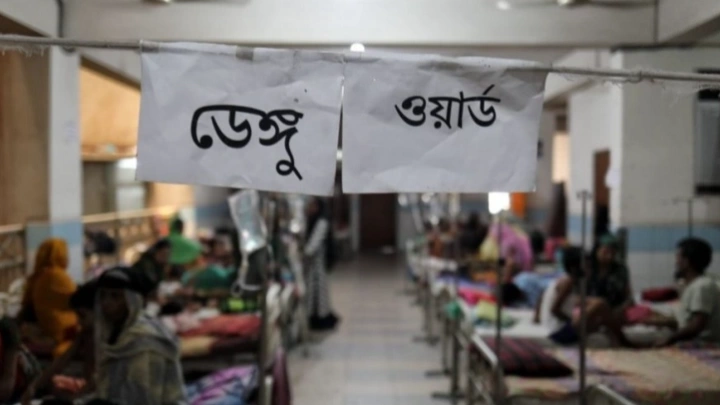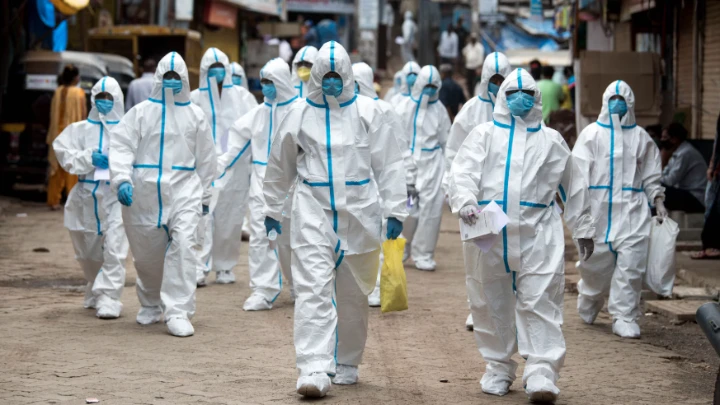With millions of chickens and ducks culled, farmers say only a vaccine can save the poultry sector from the ‘invisible enemy’
‘Unstoppable’ bird flu epidemic causes growing alarm among Dutch farmers
Shining BD Desk || Shining BD
Warning bells are ringing across the continent over an unstoppable wave of avian flu that farmers fear could lead to poultry farm bans in vulnerable wetland areas.
In the Netherlands, more than 3.7 million chickens, ducks and turkeys have been culled in the most serious outbreak ever.
In France, where breeding ducks is popular, the government said that 16 million farmed birds had been destroyed, with farmers seeing their livelihoods collapse “like a house of cards”.
Earlier this year, the Dutch environment minister, Henk Staghouwer, admitted that bird flu was now “unavoidable” in a country where 19% of the surface area is water. There had been 66 outbreaks since October 2021. Now, 10 weeks later, the figure is up to 77 and the embattled Staghouwer resigned, saying he was “not the right person” for the job.
A proposal in a Dutch government report to ban poultry farms entirely in areas near water has also sparked fierce opposition.
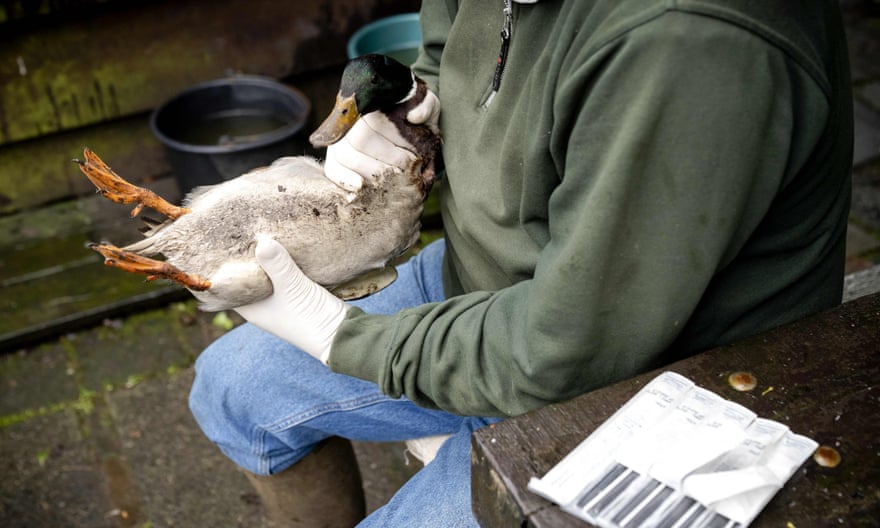
Year-round epidemic
“There were sometimes outbreaks in the winter, and not every year, but now we see the virus stays around all year, also in the summer,” said Dr Nancy Beerens, bird flu expert at Wageningen Bioveterinary Research (WBVR), which analyses suspected bird flu samples and advises the Dutch government.
“The virus is brought into the Netherlands by wild migrating birds from Siberia that stay for the winter, and before we saw that when they migrated back in April, the virus was also gone. But now all kinds of bird species have become infected and that means that the virus stays.
“This year, we see massive circulation, species that are not natural host species, seabirds, and not ones belonging to the goose or duck family, which are natural hosts.”
European and American strains that should not infect humans were infecting species such as foxes, polecats, badgers, and otters, said Beerens, adding: “This is not a good situation because if mammals become infected, we are also mammals – it means the virus is coming closer to a jump to the human species than ever before.”
‘Free-range eggs’ in EU could be from birds housed all their lives indoors
One mystery is how the infection enters farms, many of which have been banned from letting birds outside or transporting them for months. Beerens points to multiple entry points. “You just need a little bit of virus that comes with people, materials, or rodents that walk through bird faeces and come into the barn, infected feathers blown in by the wind, or rainwater that drops from the roof, where there is bird faeces,” she said.
Sijds Dijkstra, whose organic farm in Zeewolde was the first to suffer from the current outbreak in October 2021, has kept his birds inside for months. “Thirty-six thousand chickens had to be culled on my farm last year,” he said. “Right now, you could get it again at any moment.
“There’s a lot of uncertainty and risk. Stopping farming isn’t an option because you have your stalls, and you’ve invested money in them. You can’t just say: I’m stopping.”
Dijkstra, like everyone else in the sector, says the only solution is an effective vaccine. “At first, because of exports to other countries, they didn’t want to vaccinate, so nothing was developed,” he said. “I hope that now they will do something.”
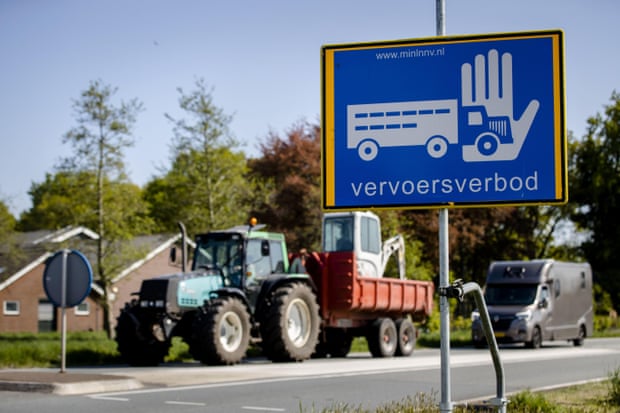
A bird flu outbreak led to a transport ban in the Gelderse Vallei region. Photograph: ANP/Alamy
Banning chicken farms
One possibility suggested last year was a complete ban on farms in “water-rich” areas – which has not been a popular suggestion.
“You can’t just draw a line through businesses full of people doing their best to protect poultry,” said Derk Boswijk, MP and agriculture spokesperson for the Christian Democratic Appeal. “The most important protection against bird flu is vaccinations, to prevent infections and culling poultry. But this means a European approach to increase the acceptance of products from vaccinated animals.”
A spokesperson for the environment ministry would not comment on the proposed ban but said the situation was “very serious”, with strict biosecurity measures and an expert report to be presented to parliament soon. “We expect a permanent threat of bird flu year-round,” she said. “Trials are currently being carried out to test the efficacy of some vaccines under high-containment conditions.”
According to Beerens, initial results from vaccine trials conducted by Wageningen Bioveterinary Research will not be available until December.
Kees de Jong, head of the poultry sector at the LTO Nederland farming union, has called for research into better filtration systems for poultry sheds and more methods to scare away wild birds but said the overwhelming need was for a vaccine – and fast.
“We have breeding farms that are incredibly strict about hygiene: nobody comes in without being showered down,” said De Jong. “They are like a hospital intensive-care unit where everything is pristine – and still, sometimes, the virus gets in.
“You are fighting against an invisible enemy.”
-TheGuardian
Shining BD

